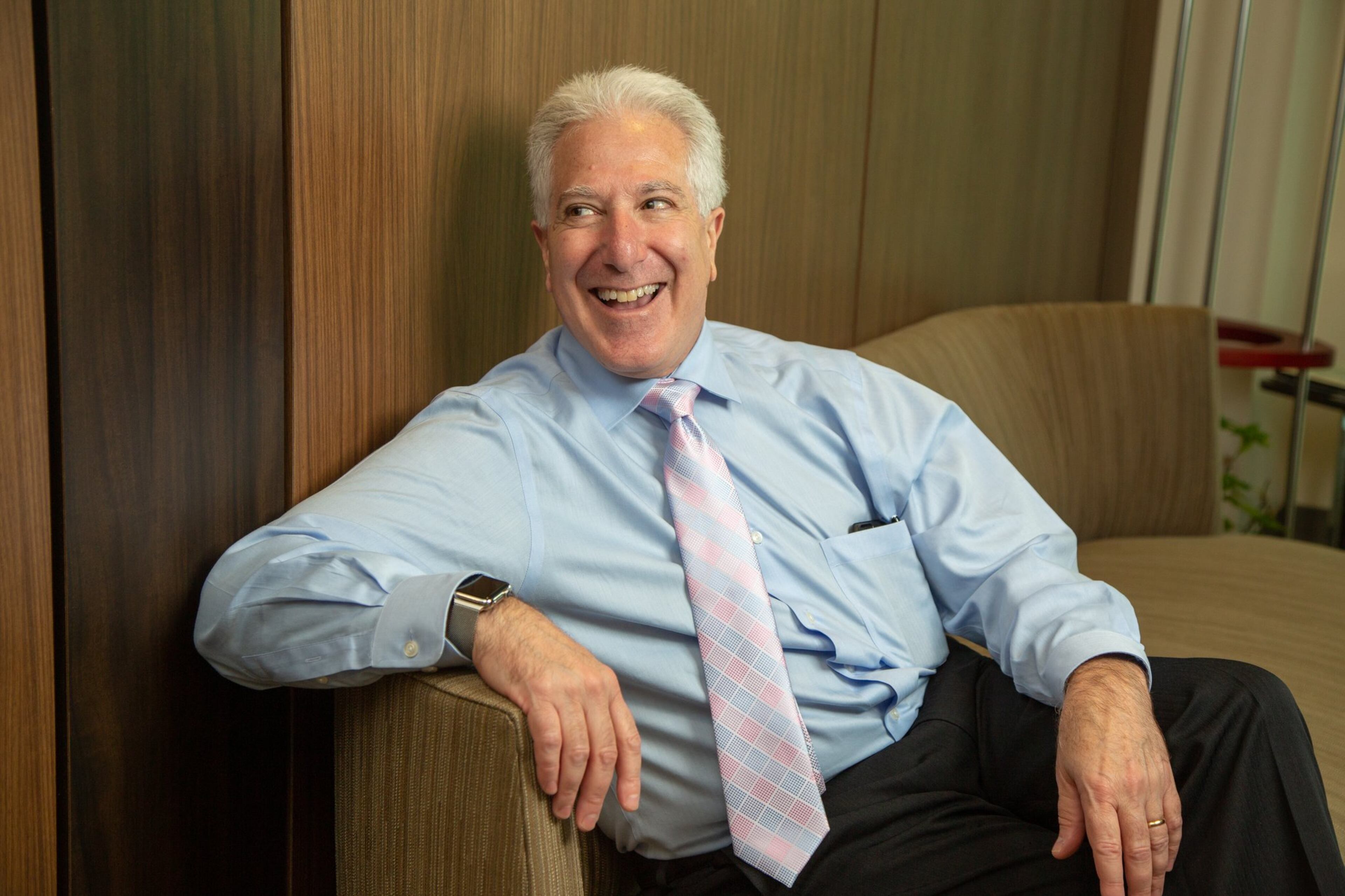New Emory program on early memory decline gets $23.7 million boost

In some ways, Dan Goerke has lost his wife. Her disappearance began slowly in her 50s.
At first, Denise Goerke would forget where she put her glasses or car keys.
Soon, though, it became more troubling.
Denise would leave for a work meeting and forget where she was headed. She would call her husband and ask where she was going and how to get there. Dan started printing out MapQuest directions, then programming the address in her GPS.
Eventually, Denise was diagnosed with Mild Cognitive Impairment, or MCI, which is often a precursor to Alzheimer's disease.
“It was a shock since because it was so early and she didn’t have a family history of Alzheimer’s,” said Goerke, of Sandy Springs. “She had been such an active person.”
Her MCI, which was diagnosed at 56, eventually progressed to Alzheimer’s disease. Denise, 62, now lives in a memory care facility with some people who are old enough to be her parents.
Her husband wonders if earlier intervention could have prevented — or at least slowed down — her decline.
Related: Georgia man runs across nation to raise awareness about Alzheimer's disease
A new groundbreaking program at the Emory Brain Health Center will tackle such early declines in memory.
The Mild Cognitive Impairment Empowerment Program is being developed through $23.7 million in grants from the James M. Cox Foundation and Cox Enterprises, which owns The Atlanta Journal-Constitution.
The new program will combine research, clinical care, patient and caregiver support while at the same time giving patients the tools to take an active role in their health.
Alzheimer’s disease is the sixth-leading cause of death in the United States, according to the Alzheimer’s Association Georgia Chapter. MCI affects up to 20 percent of U.S. residents over age 65, an age group expected to double to 88.5 million by the year 2050.
Dr. Allan Levey, director of the Goizueta Alzheimer’s Disease Research Center, said the donation will allow the Emory Brain Health Center to “help fill a gap in care and research for people with memory loss, particularly in the early stages of Alzheimer’s.”
MCI causes cognitive changes that are serious enough to be noticed by the individuals experiencing them or by other people, but usually are not severe enough to interfere with daily life. or independent function, according to the Alzheimer’s Association.
Currently there is no treatment, and recommendations tend to be vague because of the lack of evidence.

“This leaves individuals and their families frustrated and anxious about what might lie ahead,” Levey said. “The empowerment program provides them with the tools to take control of those factors, that will help them cope with memory loss and learn how to improve lifestyle and other behaviors that may mitigate the risk of its progression.
“In addition, the fact that our empowerment members are tracked day to day instead of year to year will allow our team of research scientists and clinicians to measure and monitor to see how they’re doing on a continuous basis. By using digital technology to monitor our members’ physical activity, sleep and behaviors, we can provide feedback and encouragement in this journey that they and their families are facing. We are creating what we hope will become a global model, using technologies and research to preserve, improve and prolong their quality of life.”
The initiative is in partnership with the Georgia Institute of Technology’s Institute for People and Technology and the SimTigrate Design Lab in the College of Design.
“This is a heartbreaking disease,” Jim Kennedy, chairman of Cox Enterprises, said in a statement. “We’re excited about the work Allan Levey and his team are doing and hope our gift helps improve the lives of those affected and their families.”
More health news: How a choir helps people with Parkinson's disease
More on health: When it comes to breast cancer, don't forget men
The program, in essence, will be a “living laboratory” for patients and their families that will utilize new technologies and innovations “in an environment that empowers individuals and their families to take control over their health,” Levey said.
Alzheimer’s is one of several conditions that falls under the umbrella of dementia. Not everyone who has MCI will develop Alzheimer’s.
Nationally, more than 5.7 million people in the United States are living with Alzheimer’s, including 140,000 in Georgia.
In Georgia, that number is expected to reach 190,000 in 2025.
Recently, former U.S. Supreme Court Justice Sandra Day O’Connor revealed she had been diagnosed with dementia, possibly Alzheimer’s. Alzheimer’s also struck country music legend Glen Campbell, who died in 2017; and former President Ronald Reagan, whose battle with the disease helped raise the national consciousness.
Women are more likely to get the disease than men, comprising two-thirds of patients. And older African-Americans are about twice as likely to have Alzheimer’s or other dementias as older whites. Hispanics are about one and one-half times as likely.
Health officials believe there are several factors that can lead to Alzheimer’s and MCI, including certain behavioral factors. They advise people, among other things, to exercise, eat a diet low in fat and get adequate rest.
Related: Glen Campbell's battle with Alzheimer's bring disease out of the shadows
Before her illness, Denise Goerke led an active lifestyle. When she became ill, her husband worried she might wander out of the house or hurt herself doing some task.
He usually visits her once a day where he sits with her and talks about their adult children and grandchildren. He holds her hand.
“She rarely says my name, but she does recognize family members,” he said. “I can see it in her eyes or she will move a little bit. It’s just difficult to see her in that environment because she was always the one you looked to for fun. She would light up a room when she walked in. She had such a big personality.”
Dan thought that by this time, he and his wife would be traveling and enjoying their grandchildren.
He thinks, though, “there’s a reason for everything that happens. I don’t feel like I was robbed. I feel like I just have a new mission in life that is to take care of Denise.”

